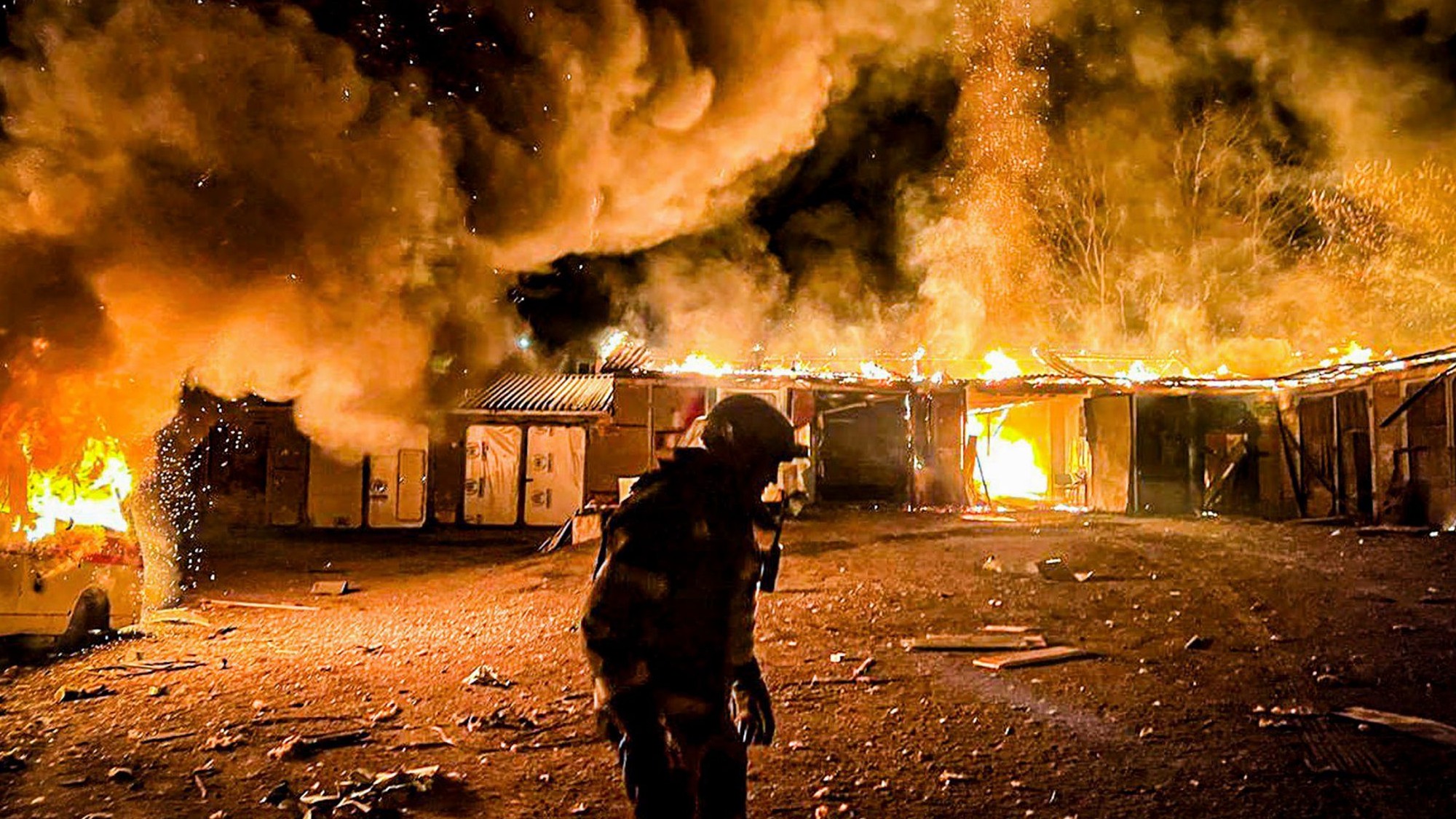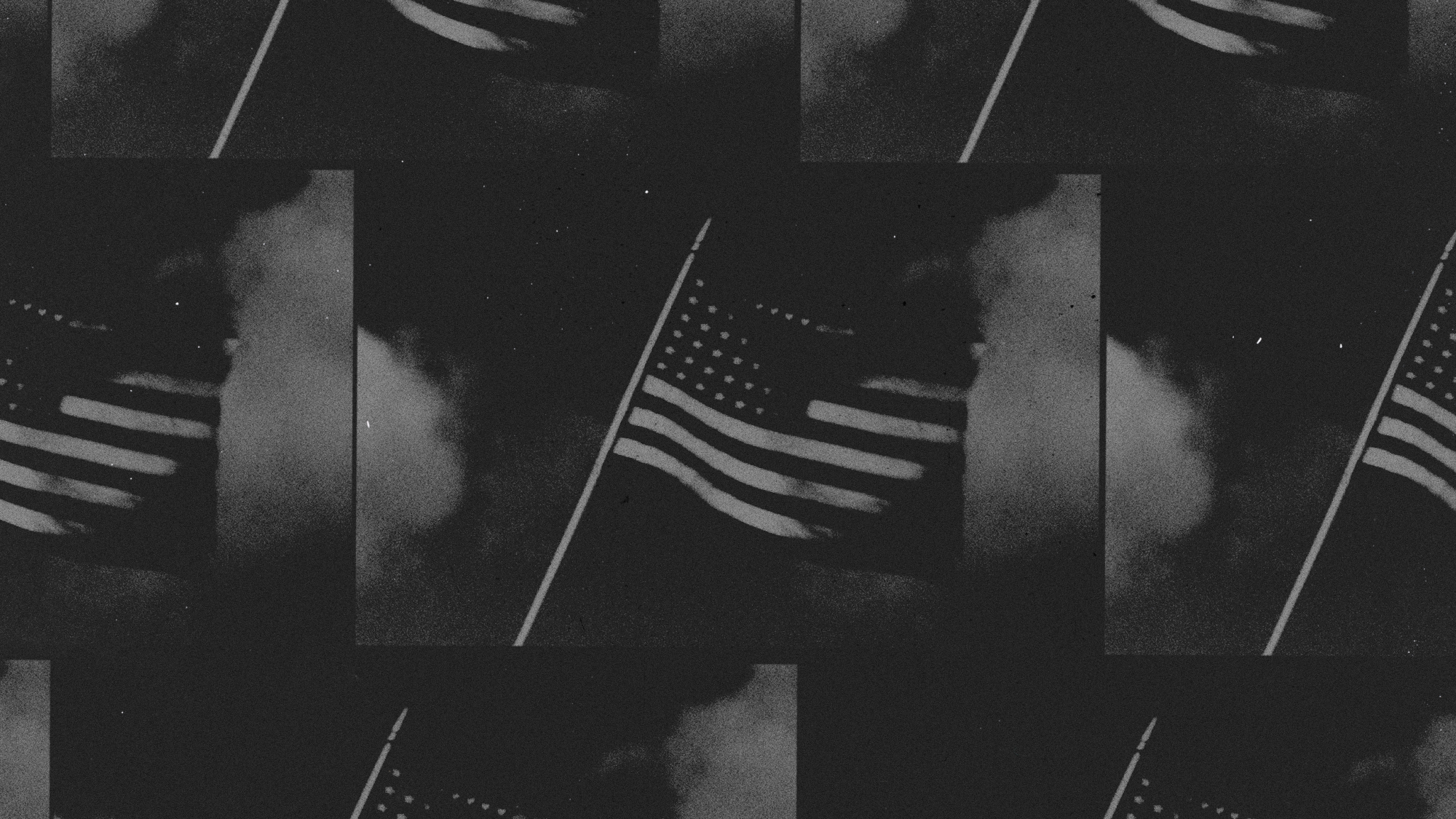Russia's spring offensive: what does it mean for Ukraine?
Kyiv's military commander says the much-anticipated attacks by Moscow forces have begun

A free daily email with the biggest news stories of the day – and the best features from TheWeek.com
You are now subscribed
Your newsletter sign-up was successful
The UK has announced a further £450 million of military support for Ukraine after Kyiv claimed that Russia's much-anticipated "spring offensive" has already begun.
Moscow is increasing its attacks around the border regions of Sumy and Kharkiv, said Ukraine's top military commander Oleksandr Syrsky, and this renewed fighting could have a significant influence on the outcome of the war.
What did the commentators say?
Analysts, including the UK's Ministry of Defence, said that Russia's "rate of advance" has been "in steady decline" over the "challenging" winter months. It has gone down from about 730 square kilometres captured in November to just 143 in March, said CNN.
The Week
Escape your echo chamber. Get the facts behind the news, plus analysis from multiple perspectives.

Sign up for The Week's Free Newsletters
From our morning news briefing to a weekly Good News Newsletter, get the best of The Week delivered directly to your inbox.
From our morning news briefing to a weekly Good News Newsletter, get the best of The Week delivered directly to your inbox.
But the arrival of spring can make it easier to advance because the ground hardens, so armoured vehicles and soldiers can move more easily.
Moscow's latest attacks on Sumy "might entail a real effort to occupy the area", said The Economist, or they might just be "a relentless series of attacks aimed at tying down Ukrainian troops and creating a buffer zone".
It's thought "these assaults" are "part of a spring offensive by Russia", said the BBC, and Kyiv believes Moscow is "preparing for a major renewed assault", with tens of thousands of troops thought to have "gathered along the border".
Moving into the region of Dnipropetrovsk would be "a significant moment", said CNN, because Russian troops haven't yet "set foot there" so it would be the first new Ukrainian region to come under "part-Russian occupation" since the early weeks of the conflict. Putin could use the area as a "useful bargaining chip" in future negotiations.
A free daily email with the biggest news stories of the day – and the best features from TheWeek.com
Despite the "downbeat assessments", it's "important to keep some perspective" because the amount of territory Russia is capturing "remains small". But Putin's recent conscription drive and Moscow's ongoing "aerial onslaught" point "more to a campaign of attrition" than any plan to "stop" the fighting.
As for the ceasefire, it's "frayed to the point of collapse", said Radio Free Europe. Kyiv and Moscow are both continuing daily attacks, "utilising scores of drones and powerful missiles".
What next?
This is "the critical year for the war in Ukraine, and this is the critical moment", said John Healey, the UK's defence secretary this morning. He was addressing members of the Ukraine Defence Contact Group, an alliance of about 50 countries that have supported Kyiv, at Nato's headquarters in Brussels. "We stand with you in the fight and we stand with you in the peace," Healey told Ukraine.
The "whole idea" of the Western allies' latest moves is to put Ukraine in the "strongest possible position" and so "pile the pressure" on Putin to accelerate the "currently slow-moving" talks on a ceasefire, said Politico – "though that hasn't worked out so far".
Chas Newkey-Burden has been part of The Week Digital team for more than a decade and a journalist for 25 years, starting out on the irreverent football weekly 90 Minutes, before moving to lifestyle magazines Loaded and Attitude. He was a columnist for The Big Issue and landed a world exclusive with David Beckham that became the weekly magazine’s bestselling issue. He now writes regularly for The Guardian, The Telegraph, The Independent, Metro, FourFourTwo and the i new site. He is also the author of a number of non-fiction books.
-
 6 exquisite homes with vast acreage
6 exquisite homes with vast acreageFeature Featuring an off-the-grid contemporary home in New Mexico and lakefront farmhouse in Massachusetts
-
 Film reviews: ‘Wuthering Heights,’ ‘Good Luck, Have Fun, Don’t Die,’ and ‘Sirat’
Film reviews: ‘Wuthering Heights,’ ‘Good Luck, Have Fun, Don’t Die,’ and ‘Sirat’Feature An inconvenient love torments a would-be couple, a gonzo time traveler seeks to save humanity from AI, and a father’s desperate search goes deeply sideways
-
 Political cartoons for February 16
Political cartoons for February 16Cartoons Monday’s political cartoons include President's Day, a valentine from the Epstein files, and more
-
 ‘The mark’s significance is psychological, if that’
‘The mark’s significance is psychological, if that’Instant Opinion Opinion, comment and editorials of the day
-
 Is the American era officially over?
Is the American era officially over?Talking Points Trump’s trade wars and Greenland push are alienating old allies
-
 Trump’s ‘Board of Peace’ comes into confounding focus
Trump’s ‘Board of Peace’ comes into confounding focusIn the Spotlight What began as a plan to redevelop the Gaza Strip is quickly emerging as a new lever of global power for a president intent on upending the standing world order
-
 Trump’s Greenland ambitions push NATO to the edge
Trump’s Greenland ambitions push NATO to the edgeTalking Points The military alliance is facing its worst-ever crisis
-
 Can Starmer continue to walk the Trump tightrope?
Can Starmer continue to walk the Trump tightrope?Today's Big Question PM condemns US tariff threat but is less confrontational than some European allies
-
 Trump considers giving Ukraine a security guarantee
Trump considers giving Ukraine a security guaranteeTalking Points Zelenskyy says it is a requirement for peace. Will Putin go along?
-
 Vance’s ‘next move will reveal whether the conservative movement can move past Trump’
Vance’s ‘next move will reveal whether the conservative movement can move past Trump’Instant Opinion Opinion, comment and editorials of the day
-
 What have Trump’s Mar-a-Lago summits achieved?
What have Trump’s Mar-a-Lago summits achieved?Today’s big question Zelenskyy and Netanyahu meet the president in his Palm Beach ‘Winter White House’